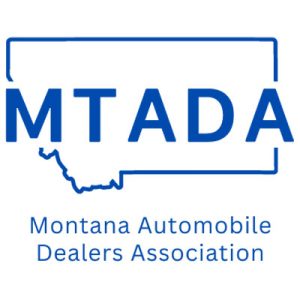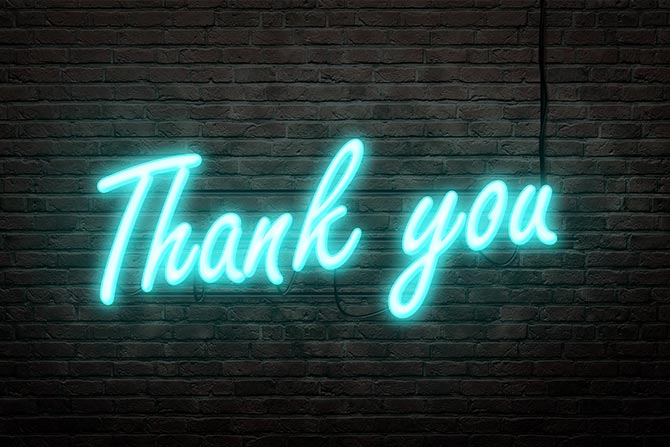Ryan Tuttle was born in Texas and at the age of 2, his family moved to Missoula, Montana. He enjoyed growing up in Missoula and spent a lot of time at his family’s property on the shores of the nearby Clark Fork River.
From the time he was old enough to help, he has gone to work with his mother at Diamond Auto Glass. Ryan has always been fascinated with cars, so helping out gave him an opportunity to be around them. “I never became a full-on installer. Instead, one of the things offered with a windshield exchange was car detailing, and I would help with that,” Ryan recalled. “I met a lot of the people in the car business because we would do windshields for some of the local dealerships. Getting to run around and climb in and out of the cars was fun.”
After earning a business degree from the University of Montana Western, Ryan decided that he wanted to start working in the auto industry. He was hired as a sales representative for Litha Motors in January 2006. Since then, he has worked his way up in the company and has been general manager (GM) for 12 years. For the past 18 months, Ryan has been the GM for the Chevrolet GMC of Helena store.
Ryan and his wife, Casey, have been married for 17 years and recently welcomed their fourth child, Neo. The rest of the Tuttle crew consists of Tytus, age 14; Ramsey, age 10 and sweet little Nya, who is 4. When the family has free time, they enjoy spending time on the water at Clark Fork River just like Ryan did when he was growing up.
We recently had a chance to sit down with Ryan and talk to him about the industry, his career and his new appointment to the MTADA board as group dealership director. The following are excerpts from our conversation.
What is the biggest issue facing the dealership industry?
After the recession in 2008 and 2009, we had a long streak of what I’d consider normal market conditions. The pandemic in 2020 really shook things up — there was a lot of fear at the start of it, inventories and staffing became a problem and then a lot of windfall from high prices. The market has slowly settled and dealerships, in turn, have had to find their new normal.
Take my store for example: All of our sales team was hired after the start of COVID. Because of that, some team members had a false sense of how you sell vehicles — thinking you could just show up and take orders. But where the industry is now, you have to have some salesmanship if you want to be competitive and succeed.
Another big challenge is inventory on the used car side. It’s not like when you used to be at an auction and you could purchase a used car for cheap. Oftentimes, auctions have higher prices than what you can buy a car from a customer for. It’s backwards, which puts a lot of pressure on the margins. Adapting is essential for survival.
Then, the government’s input influences how we operate. The constant requirements and mandates make it difficult to actually transact and slow the processes down for customers. It seems that as soon as you get them down, the government changes them. That is one of the things that keeps me busy every day.
How do you think the industry will change in the next 3-5 years?
No matter who’s elected, there will be a push for the transition to EVs. Thankfully, I think the government is starting to realize that it’s not feasible to fulfill some of the percentages and targets they set for dealers to hit. Not because manufacturers can’t build them — they are the all in — the demand from consumers is simply not there yet.
What is your biggest career accomplishment?
Four out of five years, from 2016-2020, my store earned the Lithia Partner Group Award. Considering that Lithia Motors is one of the largest automotive retailers, it is an honor for our little store to be a leading store.
One of the reasons that I went to work for Lithia Motors is the great culture of growing people up from within to provide leaders for the company. I wanted to accelerate my career, and ultimately, I wanted to be a GM before I was 30. On my 30th birthday, my regional manager called and invited me to the regional GM meeting that Lithia used to have. I had achieved my goal, and that was a good day.
Who have your mentors been? What did you learn from them?
Adam Britzius was one of the people who initially hired me. I worked for him for four years at the store in Billings. He was a former Marine, and I learned a lot about discipline from him — specifically, doing the hard things, even when you don’t want to. The challenge for me was that I’m naturally a leader by example. I played football in college and was captain of the team. I didn’t have to think about being a leader. I just showed up and did what I had to do and I naturally became a leader. But, when I became a sales manager at 26, with a whole new team that didn’t know me, I had to push myself. He really helped me see that leading a team meant setting processes and working with people.
Keith Deschane is another leader in Lithia who helped me in my career. He taught me the business aspect of this job, which I was really interested in. A lot of this industry is filled with people who run stores or maybe even own stores, and it started with them being really good at selling. But the business is so much more than that — we’re not just good at selling, we’re good at business.
When you mentor others, what are three pieces of advice you would share?
- Focus on having a plan. Addressing problems as they arise without a plan is very reactive and leads to tumultuously changing directions. When you’re leading a team, you should take account of everything, have goals and make a plan.
- Inspect what you expect. I’m a natural believer in people but the danger is that I might expect that they’ll do the job exactly how I would have done it, or they would be as accountable or as responsible as I would be. When you find out that’s not the case, it brings frustration. I’ve had to learn to inspect my expectations. Part of that is ensuring others have the tools to get the job done and having open lines of communication with regular check-ins. Having a plan is part of this process.
- This business is very people-centric and a lot of industries have kind of gone away from people being the foundation. Customers and employees alike want human assurance, people assurance. As managers, it’s easy to get frustrated with people. But if people didn’t do things that were frustrating, we wouldn’t need managers. So, we have to remember that if you’re raising your hand to be a manager, you have to be able to deal with the challenges of people.
How long have you been an MTADA member? What are the benefits of membership?
I have been a member of the association for the past eight years. Before I joined MTADA, I didn’t know what their purpose was. I assumed it was a state organization because Montana was in the name. That was my naivete. Once I started to realize that the point was protecting the well-being of the dealers of the dealerships, I was all in.
It’s easy for non-members to think “We’ll just do it ourselves. I don’t need to be part of a group.” But at the same time, we must realize that we’re dealing with big entities like the government and manufacturers. Even though Lithia is big, my store is not — it’s a pretty humble size. So when dealers lock arms and work together, we are strong and can make a difference.
Any last thoughts?
One of my favorite quotes that has helped me came from my mentor Adam Britzius who I previously mentioned. He drew upon his military training and taught me to “Embrace the suck.”
It is inevitable that hard things happen in life. It helps us not be a victim of circumstance and take ownership of the things we can control. It’s our job to overcome challenges and to keep in mind that results are often harsh but always fair.









